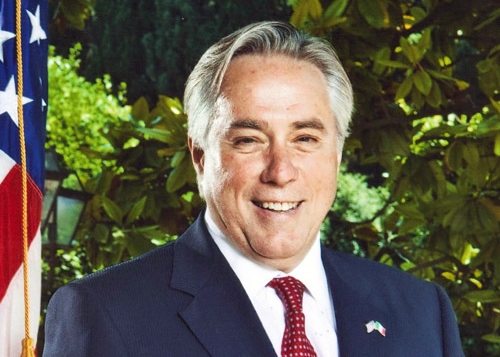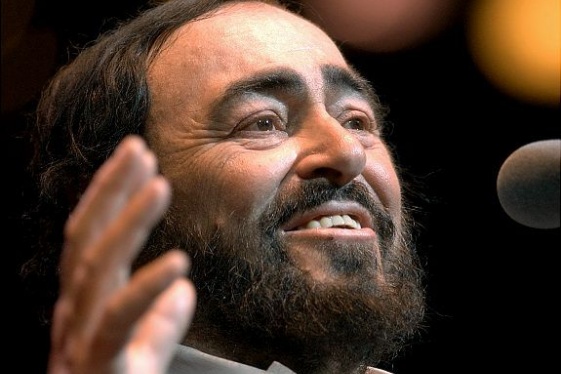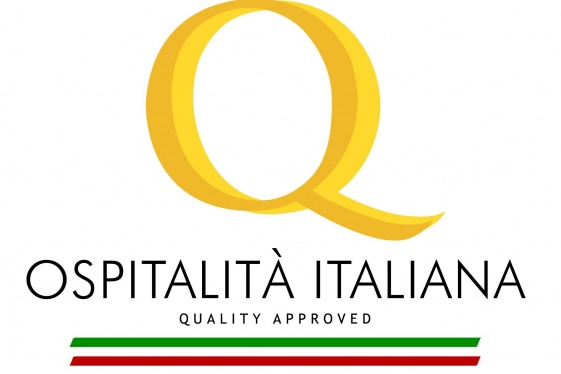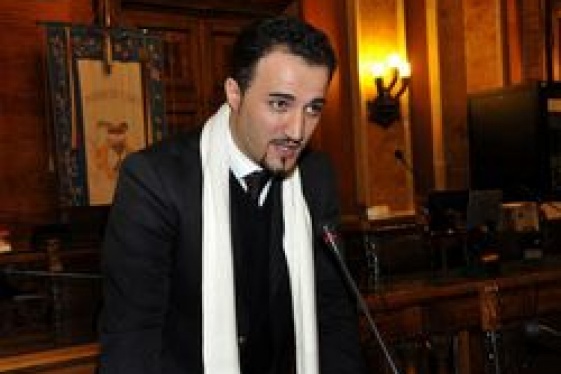
David Thorne (US Ambassador to Italy)
Usa-Italia: battere la crisi attraverso l’innovazione

For those who, like me, have the heart dividedbetween the Us and Italy, the American Ambassador to Italy is a fundamental point of reference.
From 2009 the actual Ambassador is H.E. David Thorne, who was born here because his father Landon Thorne Jr., was in 1952 the person in charge for the Marshall Plan in Italy. H.E. Thorne speaks Italian very well, he is married and father of two children and his origins are in Boston, Massachusetts, where he specialized in investments and enterprise, and in art.
Ambassador Thorne, the economic crisis has badly affected both our countries and in some cases threatens to upset the western capitalist model that has seen the U.S. become the leader of the liberal western world. We take a different view; we believe instead that western capitalism may still be the answer to the world's economic problems, beginning with the economic liberty always identified with your nation. Is this wrong? When and how will the U.S. come out of the economic crisis?
The world economy has been battered by a series of financial shocks for the past four years, so it is natural for a certain amount of pessimism to set in. Collectively, we must lean against that temptation and look over the horizon, innovate, grow our economies, adapt to change so that we can create economic opportunities for our young people.
When the crisis first hit the United States in 2008, the Obama administration moved quickly to backstop the financial sector and provide important stimulus to the economy.
We have not yet reached the level of economic growth necessary to fully employ America's hard workers, but I am confident that we are on the right path. Like you, I believe in the American spirit! Europe, too, has the tools and resources to overcome its financial crisis. President Monti has responded decisively in Italy and is playing a key role at the European level. Thanks to him European leaders are not only talking about how to reduce debt levels but, how to bring economic growth to the Eurozone.
You are a very active person within the embassy in terms of promotion and incentivization of inovation in Italy. Why is that so important in this moment for Italian growth?
Innovation and the adaptation of new technologies and business practices leads to increased productivity, the engine of economic growth in any country. In Italy, I see great potential for innovation inside the digital economy, an area where the rest of Europe and much of the world is already moving ahead.
While only half of Italians are on the Internet, the country shows growing smart-phone use and a high level of social media activity. These trends demonstrate strong interest in these sectors, and the potential for them to grow as platforms for commerce and other economic activity. Italy is poised to catapult forward into the digital age, bringing with it enormous economic returns. For this reason, I have avidly promoted innovation in Italy, particularly through the Digital Economy Forum, which brings together American, Italian, and European digital experts to share ideas. Even in a time of economic crisis, the digital world holds opportunities for growth.
In November the U.S. will vote for the White House, a third of the Senate, and the entire House of Representatives. This is simultaneously the repetition and the evolution of the grand American institutional model. What is the secret to the success of this model? Do you think this could be imported into European institutions?
Every county develops the institutions appropriate for its own traditions. In politics, it is important for the electorate to feel involved in the political process. Citizens who feel they are part of a government "by the people" are invested in maintaining it.
One way to achieve such inclusion is through the tools of Social Media, which keep the public in touch with an otherwise distant process. Twitter and Facebook are invaluable tools for officials and institutions alike, who can use a simple tweet to update citizens on policy stances, and it provides citizens the option to give direct feedback, which is extremely important. Though I helped introduce social media into Senator John Kerry's 2004 presidential campaign, President Obama showed how dramatically it can be used to organize support in his 2008 campaign. By now, I think both the Obama and Romney campaigns have embraced it as a tool to communicate with their base. From what I have seen, Italian politicians have rapidly adopted the internet, and in particular, social media as an essential campaign tool, as well.
The state of diplomatic, political, cultural, and commercial relations between Italy and the U.S. is historically excellent. What could be done to further improve it?
Italy and the U.S. have historically maintained a strong relationship based on mutual appreciation, respect, cultural ties, and harmony of political objectives. Both countries fought hard for national unity, and share proud, independent spirits.
As you say, we are in a time of particularly excellent bilateral relations. Prime Minister Monti has followed in the tradition of his successors and demonstrated himself a trustworthy and faithful ally to the United States on many fronts. He is admirably maneuvering through the current Eurocrisis, and we are fully confident in Italy's ability to phase into more prosperous economic times. Though commercial ties are strong, I would like to see even more trade between the United States and Italy.
Is there a context in which the Italian model could be studied and adopted in the U.S., and vice versa?
Italy has a long, rich history that has brought the world so much more than the traditional themes of art and cuisine. My friend and colleague, Italian Ambassador to the United States Claudio Bisogniero recently announced that 2013 will be the Year of Italian Culture in the United States. This initiative will be focused on making Americans more aware of Italian accomplishments in science, technology, arts, and more. I think this is a great idea, and I am sure we will not just learn about what Italians have done, but I hope this serves as a bridge to further joint business ventures between Italy and the United States.
Several days ago the day of July 4th was celebrated. We are grand admirers of the U.S. and are grateful for that which your country has done, given, and represented, to Italy and to others. Could you briefly describe the strength of the relationship of your fellow countrymen with your nation, symbolically celebrated on Independence Day?
Independence Day, more commonly referred to as the Fourth of July is one of my favorite holidays. Like Thanksgiving, it is quintessentially American. At first glance, Independence Day is dominated by brilliant fireworks displays, parades and family picnics. But the day also marks the beginning of a long struggle, when the colonists decided they wanted to live as free men and women. This was a fight for independence from foreign rule, and also one that brought together the divided colonies into a single, unified entity. Today these struggles take on further relevance. Lacking leadership, the thirteen colonies were ill-equipped to make necessary decisions about law, budget, and representation. Likewise, the states of the European Union face questions about the relationship between national authority and the greater European community.
At the Independence Day celebration this year at Villa Taverna, I quoted the great American Benjamin Franklin who famously said, "We must all hang together, or assuredly we shall all hang separately." Together, Europe can make it just like America did.
You grew up in Rome, in the golden years of the economic boom that, as is not forgotten here at Opinione, developed largely thanks to the generous American aid of the Marshall Plan. What is your relationship with Italy and with Rome?
Indeed I did grow up in Rome, and I quickly embraced the Italian people, language, and life. Of course, it is no secret that one of my greatest joys is following soccer, and I love nothing more than going to the stadium to cheer on the Azzuri, except when they are playing the U.S. team. As Italian became my second language, Italy likewise became my second home. I have no hesitation in calling it "la mia seconda patria." I consider myself incredibly lucky to live and work here.
You may be interested
-
Pavarotti. Il mondo di Big Luciano. Anteprim...
Il mondo di Luciano Pavarotti e la sua grande carriera di cantante lirico rivivranno il 23...
-
"60 anni di Made in Italy" protagonisti dello...
In occasione del 2013, Anno della Cultura Italiana negli Stati Uniti, la Capitale Usa cele...
-
"Authentically Eatalian": dall'Italia agli US...
Un nuovo progetto a supporto della cultura enogastronomica e dell'alimentazione sana e aut...
-
"Il ruolo ed il futuro dell’industria farmace...
Roma, 5 febbraio 2013Ambasciata Americana Buongiorno a tutti! Ė un vero piacere per me d...
-
"Ospitalita' Italiana - Ristoranti Italiani n...
Unioncamere (the Association of Italian Chambers of Commerce) with the support of the Ital...
-
"Puglia's Italy Award of Excellence in Americ...
Lunedì 3 settembre 2012 alle ore 11.30 presso la Sala Giunta del Palazzo della Provincia d...
-
"Settimana della Cucina Europea": la Sicilia...
La cucina è magia, e con un moto d'orgoglio possiamo dire che quella mediterranea è senz'a...
-
“American Families: An Ongoing Debate on an E...
Centro Studi Americani - via M. Caetani, 32 00186 Roma Tel 06.68.80.16.13 fax 06....












